We believe Canada is home to vast forests teeming with wildlife. What if that’s not true anymore?
In the face of head-spinning political times, a leading Canadian scientist says cutting ‘red tape’...
The building at 1209 Orange Street in Wilmington, Delaware, isn’t the first place Albertans might associate with their government’s push for pipelines.
You won’t see any politicians wearing construction hats and standing behind podiums at this two-storey, yellow-brick structure.
It is home, however, to a popular service that offers companies a registered address to receive official documents within the state, even if its owners are not physically present there. Walmart, Verizon and eBay have all used its services, state records show.
Another client was a Delaware-based firm named 2254746 Alberta Sub Ltd. Behind the company’s vague name is a familiar face: Alberta Energy Minister Sonya Savage.
The minister, a former pipeline industry lobbyist, is responsible for the Alberta Petroleum Marketing Commission, a provincial Crown corporation tasked with selling the province’s oil and gas to the world.
The commission owns 100 per cent of 2254746 Alberta Sub Ltd. It created the company on March 30, 2020, just one day before the commission entered into an investment deal with TC Energy Corp., the oil and gas giant behind the Keystone XL pipeline project, to commit up to $7.5 billion in public money to subsidize the multinational company.
The numbered company was not the only one that the commission would use in its investment deal with TC Energy. It would ultimately work through four other numbered companies — two more based in Delaware and two in Alberta.
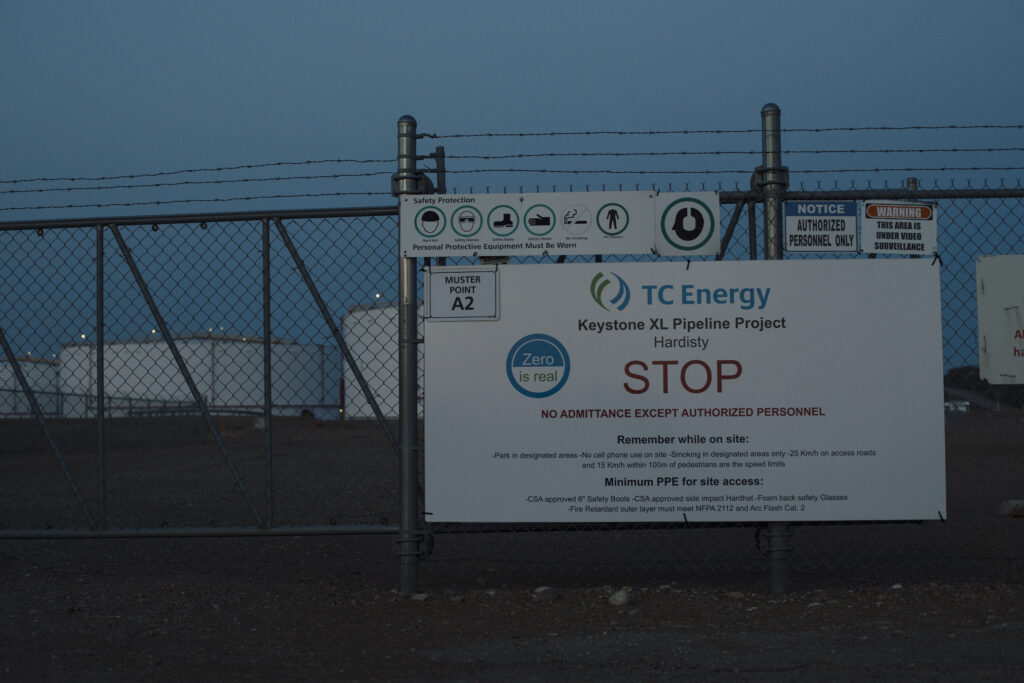
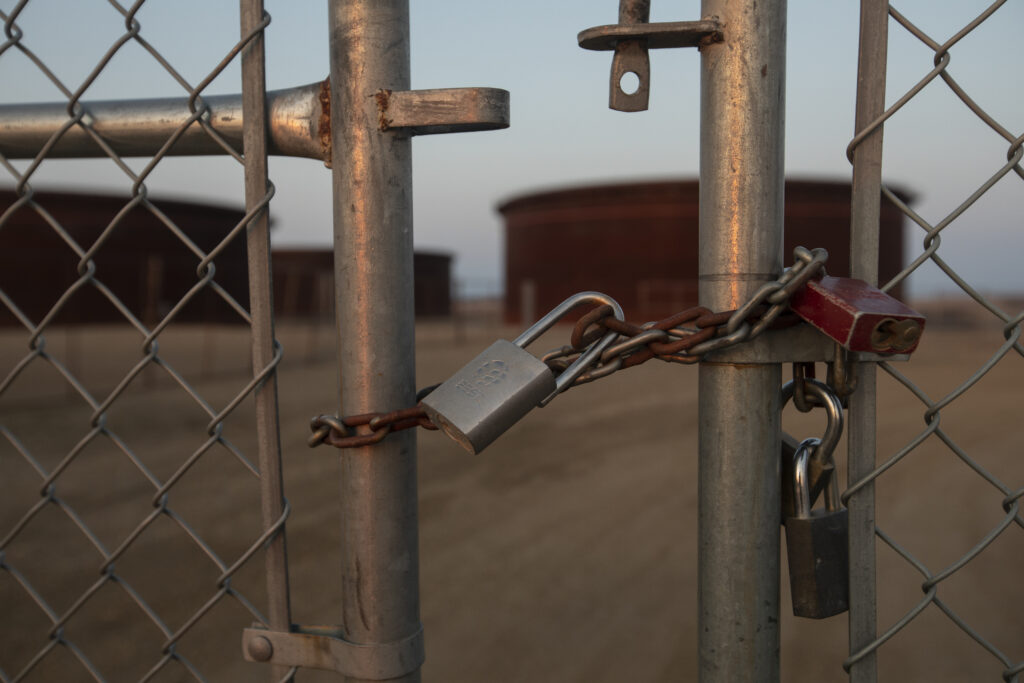
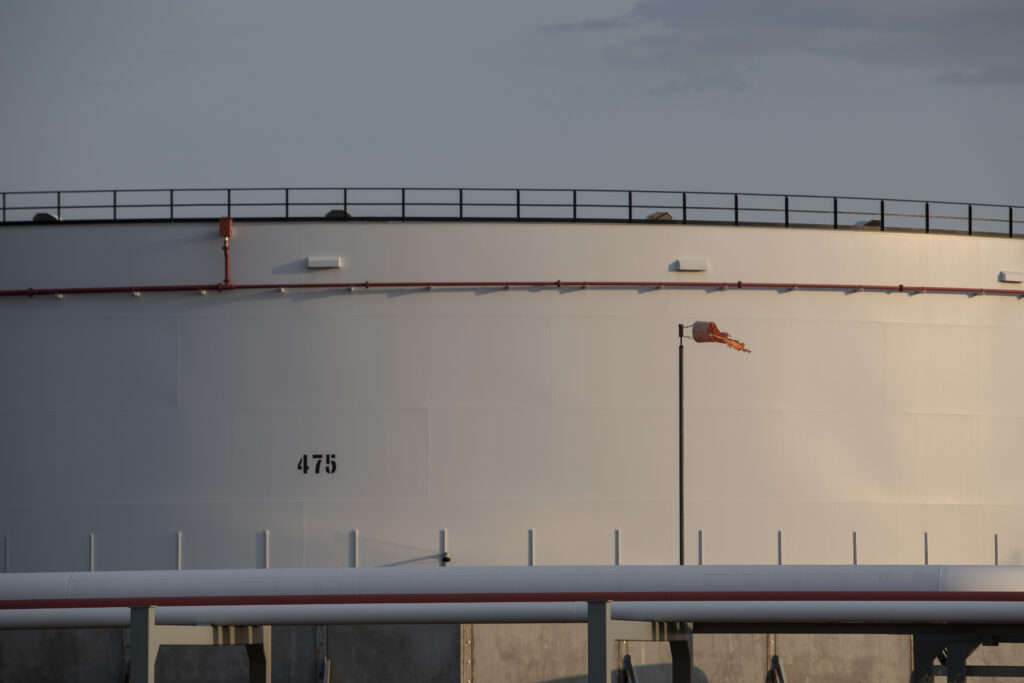
The business structure demonstrates the lengths to which Alberta went to invest taxpayer money in Keystone XL — including up to $7 million in “administration and finance costs” according to a provincial audit. The province made this financial gamble at a time when Alberta Premier Jason Kenney admitted, in an April 2, 2020, speech to the provincial legislature, that the project was already facing significant “political risk.”
The purpose of 2254746 Alberta Sub Ltd., according to the commission’s annual report, was to allow Alberta to help finance the costs of building the U.S. portion of the pipeline, which was meant to massively expand Canadian crude oil exports from Alberta. It would have brought 830,000 barrels per day of crude from Hardisty, Alta., to Steele City, Nebraska.
The project, however, actually left the province on the hook for $1.333 billion, according to Alberta auditor general Doug Wylie. Alberta shared in the financial pain that the company suffered after U.S. President Joe Biden issued an executive order on his first day in office that revoked the pipeline’s permit.
Biden, noting that the planet is facing a climate crisis, said the project would “undermine U.S. climate leadership” and make it harder for Americans to influence other countries to take ambitious climate action.
TC Energy pulled the plug on Keystone XL a few months later in June 2021 and its assets plummeted in value.
Alberta and TC Energy are now trying to recoup their losses through two separate challenges under the Canada-U.S.-Mexico-Agreement. Alberta launched its challenge on Feb. 9, seeking “damages” of $1.3 billion.
The Canada-U.S.-Mexico-Agreement has a provision that allows for older rules under the North American Free Trade Agreement to still apply if investments were made before the new agreement took effect in July 2020. Alberta is using those “legacy” NAFTA rules in its challenge.
In doing so, the commission has drawn upon the Delaware companies to argue that it has standing to pursue a claim, according to a NAFTA document drawn up by the commission’s lawyers.
NAFTA rules are clear that an investor of a party may submit a claim to arbitration that another party has breached certain obligations. What is less clear is whether a provincial Crown corporation falls within the definition of an investor, and whether the Delaware subsidiaries would be considered to be investments in Keystone XL under NAFTA rules.
Because of their numbered names and use of registered address services, the state corporate records of Delaware give no hint of the Alberta Crown corporation’s ownership of these companies, other than the fact that the word “Alberta” is in some (but not all) of the company names. Only the commission’s annual report, or the document from the commission’s lawyers, make the connection clear.
Transparency International Canada’s executive director James Cohen said provincial governments and Crown corporations should be voluntarily naming themselves in corporate records, even if there are no explicit requirements to do so. He called Delaware a “very well known secrecy jurisdiction.”
“The paper trail should be there through the whole thing,” he said in an April 26 interview. People looking at corporate registers, he said, shouldn’t have to cross-check their search with company names in annual reports.
When The Narwhal searched for the corporate records in Delaware, it found that 2254746 Alberta Sub Ltd. was assessed on March 2, 2022, as “delinquent” for failing to pay US$386.26 in taxes or file an updated annual report.
Asked about this, the provincial commission’s chief of staff, Lynda Gwilliam, told The Narwhal in an email that the company’s taxes “were initially delayed, but have since been filed with the appropriate bodies.”
Gwilliam did not provide an explanation for the delay, but wrote that its Delaware corporate structure was nothing out of the ordinary.
“For the partnership with TC Energy to build [Keystone XL], the [Alberta Petroleum Marketing Commission] set up companies in both countries, as is a common practice in such situations,” Gwilliam wrote on April 22.
“These companies were utilized to construct the [Keystone XL] project and were in no way a ‘backup plan’ related to any subsequent NAFTA claim.”
The commission’s legal document that lays out the Delaware investment structure is known as a notice of intent. It has to be delivered to the disputing party, in this case the U.S. State Department, before a claim can be filed. Given the required window from when the notice was delivered, the earliest the commission can file its claim is May 10.
The law firm representing the commission in its trade challenge is Washington, D.C.-based Crowell & Moring LLP. A spokesperson for the law firm confirmed April 5 that it was representing the province but declined to answer any other questions.
The commission’s investment deal with TC Energy, which it carried out through the Delaware and Alberta companies, means that it “qualifies as ‘an investor of a party,’ ” its lawyers argued in the document, and is “accordingly capable of pursuing a claim on its own behalf” or on behalf of its investments.
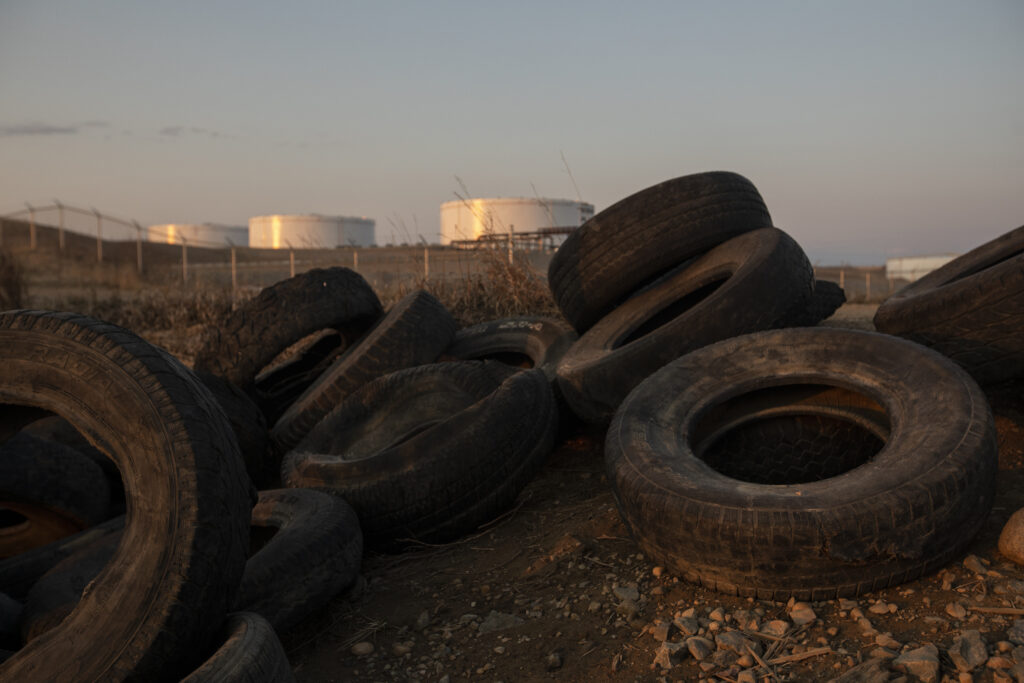
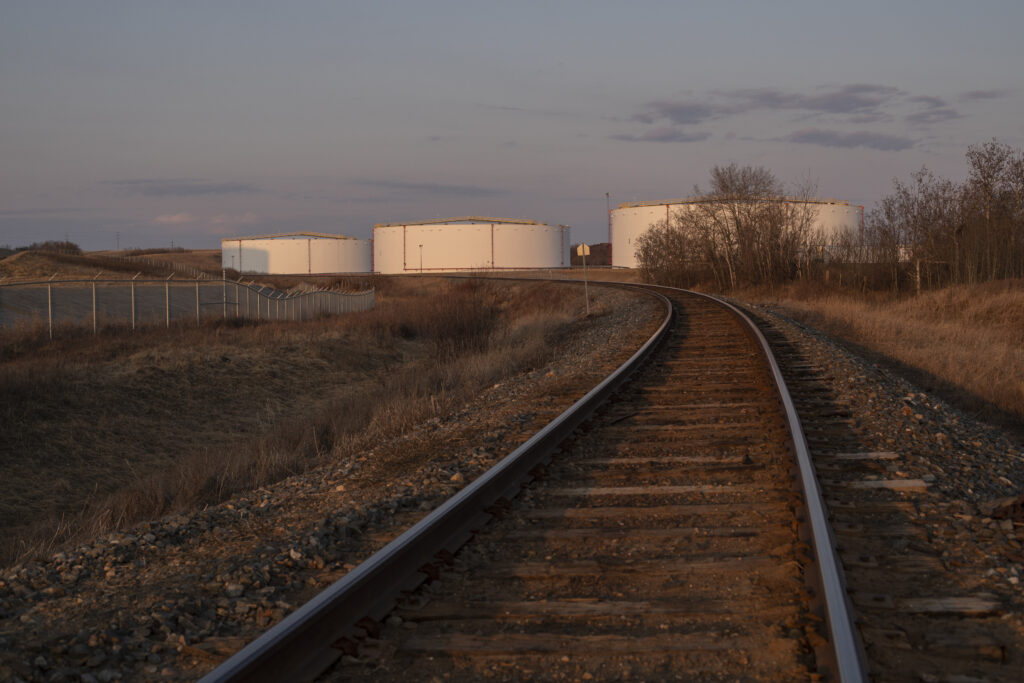
Delaware is known as a jurisdiction where it is cheap, easy and quick to create new U.S.-based corporations, said Mitchell Stein, an associate professor and director of the CPA-Ivey Centre for Accounting & The Public Interest at Western University in London, Ont., in an interview in April
“If you want to quickly set up a U.S. entity, you just go to Delaware, phone a lawyer up there and snap — there’s your entity, thank you,” said Stein, who has researched how U.S. states changed their corporate laws in part to compete for business registrations.
“Probably their lawyers thought it was the quickest and easiest way to do this, at the lowest cost.”
Another company the commission used in Delaware, named 181531115 Limited Partnership, was a type of business called a special purpose vehicle. This means it was created to assume financial risks and protect a parent company or companies. It used a different registered address, this one located on the outskirts of Wilmington. Its purpose was to administer the pipeline project’s “costs, revenues and management,” according to the NAFTA document. This company isn’t mentioned in the commission’s annual report because it wasn’t created by the Crown corporation itself, Gwilliam confirmed by email on May 2. The commission’s financial statements do refer to “investments in various TC Energy-affiliated subsidiaries as part of the partnership that was in place,” she wrote in an email.
The five companies in Alberta and Delaware are interconnected, either as intermediaries or shareholders of one another. Little else is known about their operations or management.
A spokesperson for the Delaware division of corporations, part of the state government, explained on April 21 that companies like those set up by the commission would not normally list the officer or director names as part of their corporate filings.
Savage’s office did not answer questions from The Narwhal about the Keystone XL investment or the Delaware corporate structure. A spokesperson acknowledged April 11 and again on April 21 that he had received questions but had not provided any comment by the end of April.
TC Energy declined comment, saying all details available to the public were already contained in its public disclosures.
The U.S. State Department doesn’t comment on pending litigation, said a spokesperson by email.
Wylie, the provincial auditor general, also verified whether the commission had accurately accounted for the government’s $1.3 billion in losses stemming from its deal with TC Energy and concluded in an audit that the numbers were accurate, but could change as assets are being liquidated.
According to its 2021 annual report, TC Energy said that the value of its Keystone XL assets had dropped from an original value of $3.3 billion to an estimated $175 million.
On June 9, 2021, Alberta announced that it had signed an agreement with TC Energy that would provide for an “orderly exit” from their “partnership.” Seven days later, on June 16, the commission’s annual report said it sold its old pipeline shares back to the company for a “nominal amount.” It is unclear whether Alberta was bound to sell back the shares as part of the exit agreement or the original investment deal.
Stephen Ellis, an energy and utilities strategist for Morningstar, a Chicago-based financial services firm that offers star ratings of businesses based on performance measures, said the “nominal amount” meant pennies.
“The government invested the money in the pipeline, and that investment turned out to be essentially worthless,” he said.
Ellis said TC Energy made a “smart decision” to partner with Alberta to “share the risk among multiple parties,” which he considered a “good financial practice in terms of protecting their own shareholders.”
In theory, he said, if the energy company was to prevail in its own NAFTA challenge, where it is asking for $15 billion in compensation, “it’s possible that some of that money might be shared with the government of Alberta.”
A month before Alberta made its investment in Keystone XL in spring 2020, TC Energy executives had admitted the pipeline project still required legal approvals and was still dealing with litigation.
There was also an Indigenous and climate movement opposed to it — not to mention the risk that it could be stripped of its presidential permit if the White House changed hands that fall.
During his speech to the Alberta legislature that April, Kenney promised Albertans that he had “taken every measure to protect taxpayers.” When the pipeline project was completed, he added, the province expected to make a “substantial profit” by selling its stake and predicted it would generate “$30 billion in Alberta government revenues” — money he said could be used for “health care, for education, for social programs, for our standard of living.”
Alberta finance critic Shannon Phillips, who was the environment minister under the NDP government of Rachel Notley, told The Narwhal in an interview April 5 that the Keystone XL deal showed how Kenney and the UCP “have taken massive risks with our money.”
“There’s absolutely no way that we would have entered into an agreement such as this,” Phillips said.
“You do not have to have an MBA, you only have to have a Google News feed to understand that Donald Trump was the least popular president in U.S. presidential history, and to spend $1.3 billion on a bet that he would be re-elected, has got to be up there in the stupidest political plays of all time.”
Phillips said the $1.3 billion that the government lost in the deal could have been used in other areas too, what she described as “real diversification projects, real infrastructure, real investments in health care, education or making life more affordable.”
In addition to the investment deal and the NAFTA trade challenge, Alberta has also pursued other Keystone XL-related litigation and promotional activity in the U.S.
For example, the province intervened in support of a separate lawsuit filed by Texas and 22 other states, challenging Biden’s revocation of the Keystone XL presidential permit.
In a court filing dated Sept. 16, 2021, the province asserted that Keystone XL — which at that point had already been terminated by TC Energy — was actually still a “viable, international pipeline project.”
The province tried to appeal to U.S. interests, arguing that the pipeline project would create jobs, bring state and local tax revenue and income for local businesses, and provide “essential crude oil supplies” for producing “life-enhancing products” and supporting the United States’ “long-term energy security.”
In January 2022, the lawsuit was dismissed by a U.S. federal judge, who wrote that the case no longer had any relevance.
“The court takes TC Energy at its word that Keystone XL is dead,” the judge wrote.
“And because it is dead, any ruling this court makes on whether President Biden had the authority to revoke the permit would be advisory. Thus, the court has no jurisdiction and the case must be dismissed as moot.”
As the NAFTA trade challenge continues, Kenney is now looking beyond Keystone XL.
The premier met with U.S. Senator Joe Manchin, the chair of the U.S. Senate energy committee, in Calgary in April and toured oilsands operations. According to Kenney, they discussed a replacement for the pipeline project.
Any new cross-border pipeline proposal would have to contend not only with a skeptical White House, which threw cold water on the idea last month, but also the fact that Enbridge’s $8.2 billion Line 3 Replacement Project came online in the fall of 2021.
The expanded pipeline is supplying 760,000 barrels per day of Canadian crude oil to U.S. refineries, a major expansion of Canada’s export capacity, and handing Canadian producers more access to the U.S. Gulf Coast, which had been a goal of Keystone XL.
When the subject of Keystone XL came up at an April 12 press conference, Manchin, who has pushed back on climate initiatives and who benefits from significant campaign contributions from the oil and gas industry, shrugged it off as “a sore point for both sides.”
“The brand of the XL pipeline is probably gone,” the senator said. “Can it be rebranded? Can it be rerouted? Can it be different things …” he wondered aloud before trailing off. “We need this product.”
Kenney also told viewers of an April 20 livestream that he planned on meeting with members of Manchin’s committee in Washington, D.C. in May “to discuss what we call the North American energy strategy, which would include another major pipeline.”
“We continue to have fruitful discussions with many key leaders in the United States about what might be a replacement for Keystone XL,” Kenney said.
“And I believe where there’s a will there’s a way — that if we get the right alignment in the U.S. Congress, it’s conceivable that you could have a strong majority, perhaps even a veto-proof majority, to pursue a successor to Keystone XL.”
Updated on May 5, 2022, at 11:44 a.m. ET: This story was updated to correct information from a source that had stated that NAFTA rules would not allow the Government of Alberta or its Crown corporations to sue the U.S. government. What the NAFTA rules actually say are that an investor of a party may submit a claim to arbitration that another party has breached certain obligations. The story was also updated to add information received after deadline to clarify why one of the numbered companies was not listed in the Alberta Petroleum Marketing Commission’s annual report.
Get the inside scoop on The Narwhal’s environment and climate reporting by signing up for our free newsletter. This story is a collaboration between The Narwhal...
Continue readingIn the face of head-spinning political times, a leading Canadian scientist says cutting ‘red tape’...
‘This doesn’t happen by accident,’ says former mining reporter Francesca Fionda in our latest newsletter
Shorter, warmer winters but also colder cold snaps — Canadian winters are getting a reset
